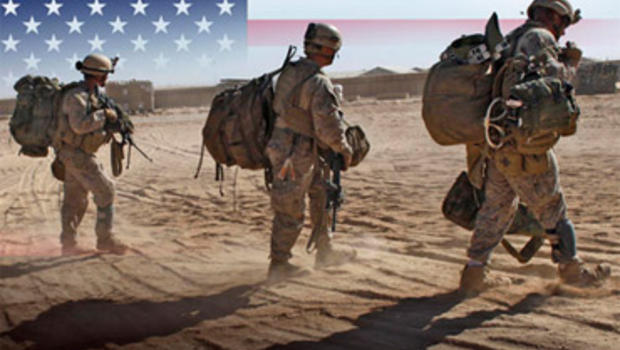When does a stalemate create conditions for peace? Let’s look at Afghanistan

Seventeen years into the war, what is there to say about Afghanistan? Lots apparently. On Monday, December 17, the Taliban sat down at the table with US special representative for Afghan reconciliation, Zalmay Khalilzad.
It may not amount to much in the long run but at least it’s a sign the Taliban wants to end the state of war just as much as the government in Kabul.
That’s rather a good thought on which to end 2018. There’s been so much bad news from Afghanistan this year. Last month (November 20) there was a horrific suicide bombing in Kabul, which killed 50 people.
And there was a sense of drift. America, it’s been said over and over, is unable to achieve its goals in the war. Some say it’s no longer even clear what the goals are.
I disagree.
US goals for Afghanistan from the day it went in to deal with the Taliban hosts of Osama Bin Laden were clear:
** bring Bin Laden to justice for 9/11
** ensure Afghanistan is no longer a sanctuary for people plotting mass murder overseas
** punish Afghanistan’s recalcitrant Taliban government for shielding Bin Laden
All of the above have been achieved.
But in the process, Afghanistan has been dragged down a different path, one that would not come to it naturally. It has been pushed to have representative democracy on the western model rather than pursue its own indigenous system. The shura system is localist, responsive to shifts in public opinion, well-tuned to the needs of the community. It is also sexist and weighted in favour of age, as is the way in most traditional societies.
The second problem with the way the Afghan war has been run is money. There’s been too much of it thrown at Afghanistan from time to time. The country has had to absorb (and use properly if it can) the huge inflow of cash for good causes. It couldn’t of course. There wasn’t a natural propensity to spend wisely and well on public services. Nor was there local expertise, clear regulations, and effective law enforcement.
The third and final issue is the Taliban. They haven’t gone away. On November 17, General Joseph Dunford, chairman of the Joint Chiefs of Staff, admitted the Taliban is “not losing right now”. The General made his remarks at the Halifax International Security Forum. He added: “We used the term stalemate a year ago, and, relatively speaking, it has not changed much.”
The General spoke just days before a Department of Defense report acknowledged there had been little progress toward reconciliation with the Taliban. It was a reiteration of the General’s point that Kabul and Washington are a “long way” from reaching a point of reconciliation with the Taliban. In fact, terrorist attacks are increasing. “The number of suicide attacks increased by 38 per cent between May and August compared to the same period last year, although there was a slight decrease in the number of overall security incidents,” the report said. “Meanwhile, there was an uptick in both civilian and Afghan military casualties.” And recent analysis from the Foundation for Defense of Democracies shows that half of Afghanistan’s population lives in districts outside the central government’s control.

